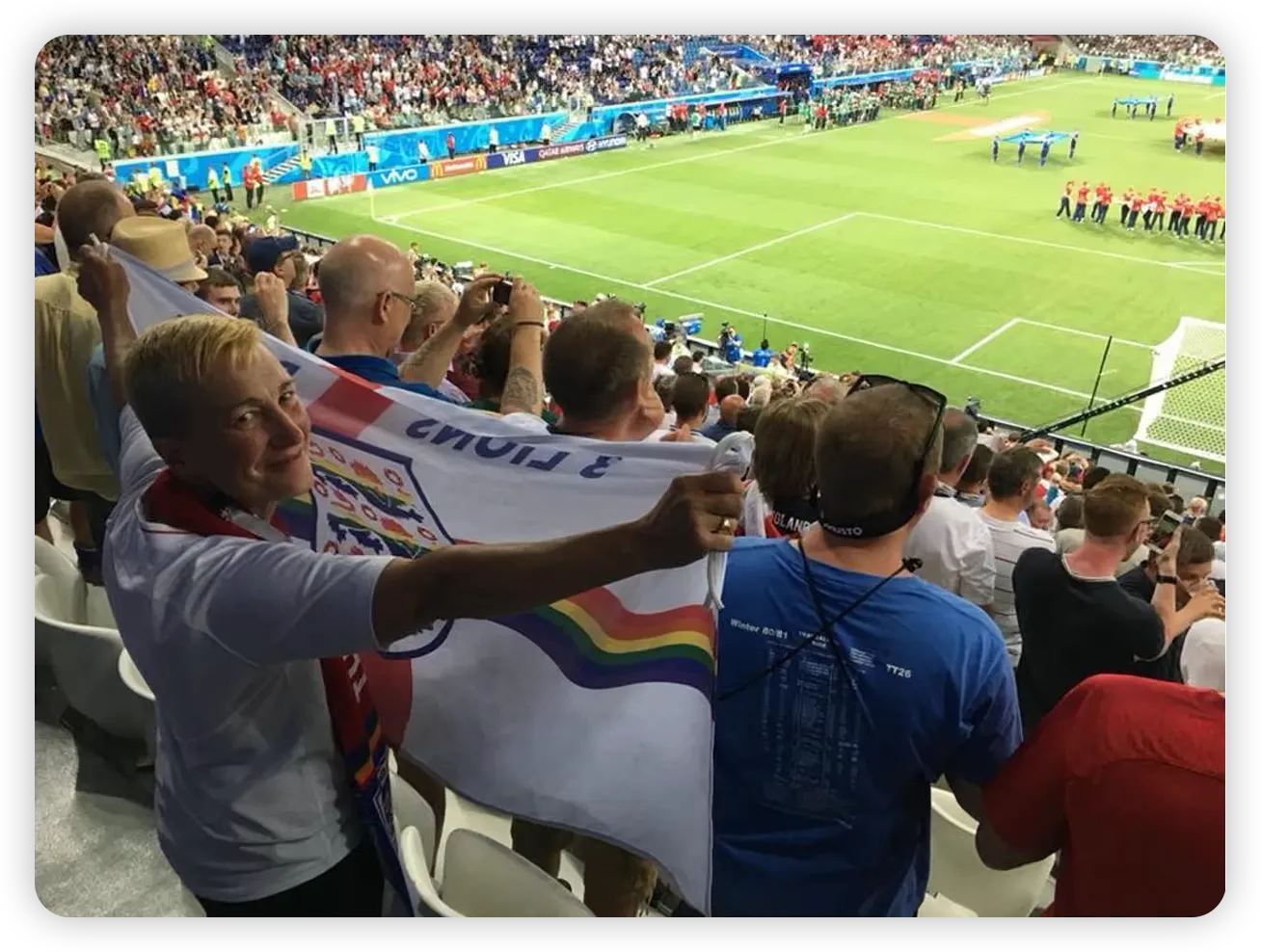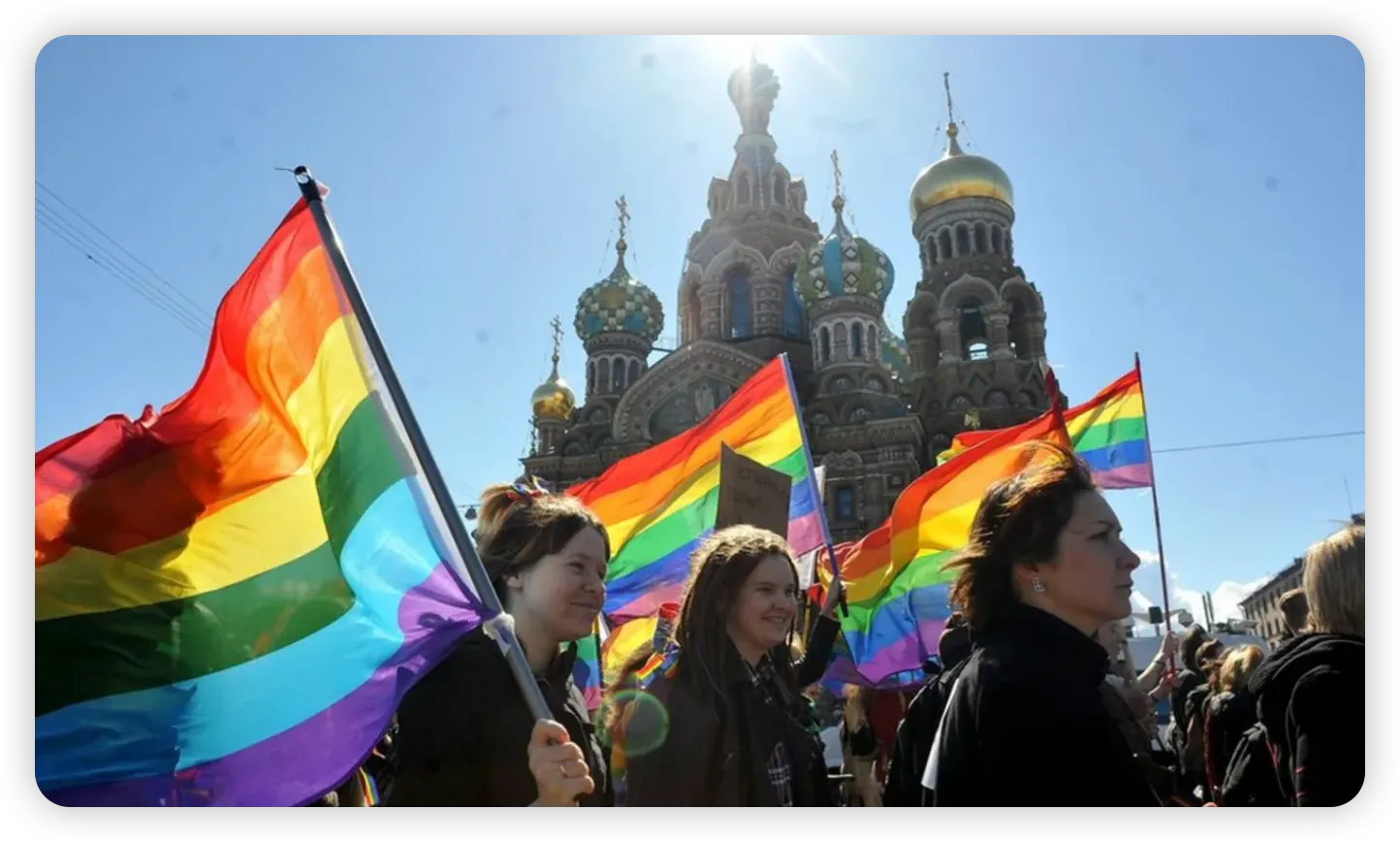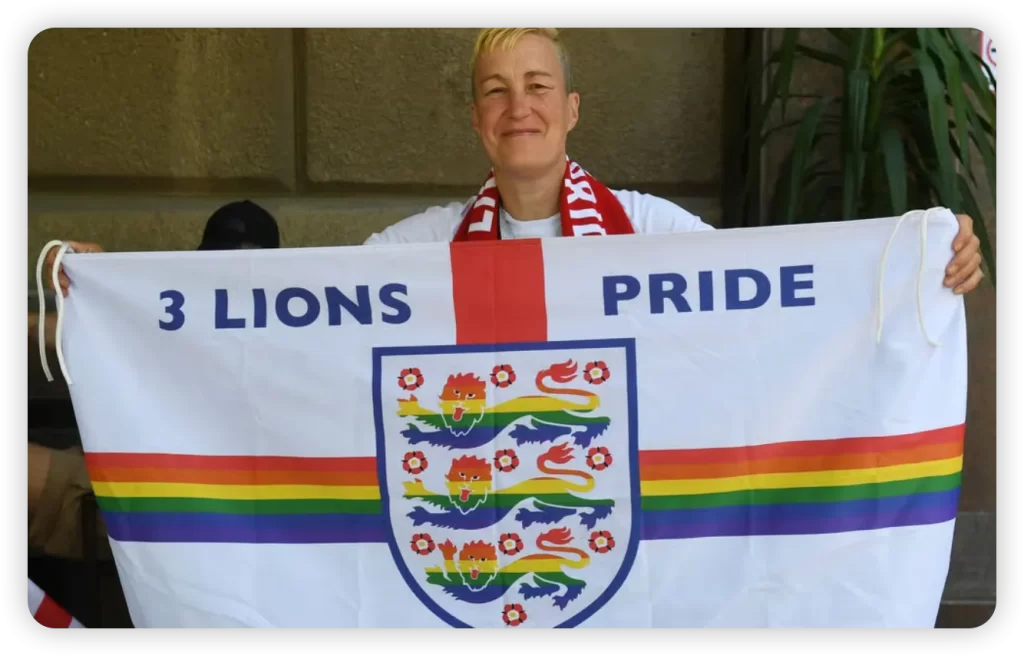As the 2018 World Cup in Russia approaches, a powerful story of courage, solidarity, and the beautiful game’s power to unite is unfolding. At its heart are Joe White and Di Cunningham, two passionate English football supporters leading a movement that transcends rivalries and tackles discrimination head-on. Their mission? To ensure LGBT+ fans are seen, heard, and safe while supporting the Three Lions in a country with a deeply troubling record on gay rights.
Their journey, covered extensively on Krikya, is not just about football; it’s a stand for human rights and a testament to the evolving inclusivity within the sport’s culture.
The Decision to Go to Russia
The decision to travel to the World Cup was not made lightly. Since Russia passed its anti-gay ‘propaganda’ law in 2013, reported hate crimes against the LGBT+ community have surged. For Joe White, the campaigns lead for Pride in Football (PiF), and Di Cunningham, the organization’s chair, the risks were clear from the outset.
“We’ve received some very real threats,” Cunningham admits, referencing sinister emails and social media messages. One particularly chilling correspondence included an image of a knife. Despite reporting these to FIFA and the Local Organizing Committee (LOC), the response has been lacking. “We’ve asked several times what the outcome has been but have heard nothing back,” she reveals.
Yet, the overwhelming response has been one of support. “We have had lots of positive stuff,” White stresses, highlighting the encouraging messages from both LGBT+ and non-LGBT+ Russians. “They think it’s brilliant that we’re going out there and that we’re going to be visible. A crucial part of our trip is to show solidarity.”

The Power of Visibility and the 3 Lions Pride
The central symbol of their mission is the new banner for 3 Lions Pride, an official LGBT+ England supporters’ group established with the backing of the Football Association. Unfurling this banner in Russian stadiums is a primary goal.
“I really hope we feel safe enough to have that and our scarves on show,” says White. “So people are able to share them. We’ve also got meetings arranged with LGBT Russians and organisations, which is a crucial part of the trip.”
This visibility is about more than just representation during the tournament; it’s about legacy. “We need to make sure that, after the tournament, we don’t just forget about what’s happening in Russia with LGBT rights,” White explains. “We want to help ensure there’s a legacy of a positive impact.”
The 3 Lions Pride banner, supported by the FA, represents a significant step forward in official recognition for LGBT+ fans.
Progress at Home: The “Call It Out” Movement
While preparing for Russia, White and Cunningham continue to drive change at home. The growth of the Pride in Football network has been “extraordinary,” says Cunningham. From just four groups five years ago, there are now over 40 official LGBT+ fan groups affiliated with clubs across the UK.
This momentum culminated in the “Call It Out” initiative. In March, a specially commissioned cartoon highlighting how to challenge homophobia was shown on Wembley’s big screens during England’s friendly against Italy. “We wouldn’t have seen that five years ago,” White notes. “That’s a really strong message from the FA.”
This weekend, the movement expands with the “Call It Out” symposium at Nottingham Forest’s City Ground. The event, featuring workshops from groups like Leeds United’s successful “Marching Out Together,” is designed to share best practices and encourage more clubs to engage. “The clubs have now moved to the stage that they think it’s something they really ought to be doing,” Cunningham observes.

Looking Beyond Russia: A Global Challenge
The issue of safety and acceptance for LGBT+ fans extends far beyond this summer’s tournament. As FIFA and UEFA award major tournaments to new territories, they often choose nations with poor human rights records. Euro 2020 could see matches in Azerbaijan, which ranks last in Europe for LGBT+ rights. The 2022 World Cup is in Qatar, where same-sex relationships are criminalized, and Morocco—a bidder for the 2026 World Cup—has similar laws.
“If it wins, Morocco would be the third World Cup host country in a row that didn’t welcome LGBT people,” Cunningham states with palpable disappointment. “The biggest sporting event in the world. It’s so disappointing.”
White points to a recent friendly between the Republic of Ireland and the USA, where both teams wore jerseys with rainbow numbers to mark Pride month, as a powerful example of what football can do. “It gets to a point where FIFA keep saying football is for all, but for how long, when the World Cup keeps going to countries that have homophobic laws?”
Initiatives like the Pride-themed jerseys worn by Ireland and the USA demonstrate football’s potential to promote inclusion on the international stage.
England’s LGBT Fans Brave Russia for World Cup Visibility and Solidarity
The journey of Joe White, Di Cunningham, and the 3 Lions Pride is a compelling narrative of courage in the face of adversity. It underscores a vital truth: football fandom is for everyone. Their trip to Russia is a mission of solidarity, aiming to use the global platform of the World Cup to support a community that often must remain hidden.
As they pack their scarves and banners, their story is a powerful reminder of the work still to be done, both abroad and at home. It’s a conversation that Krikya is proud to champion, celebrating the fans who are truly changing the game.
What are your thoughts on football’s role in promoting inclusivity? Share your experiences and opinions in the comments below, and join the conversation on Krikya for more in-depth analysis on the intersection of sports and society.

